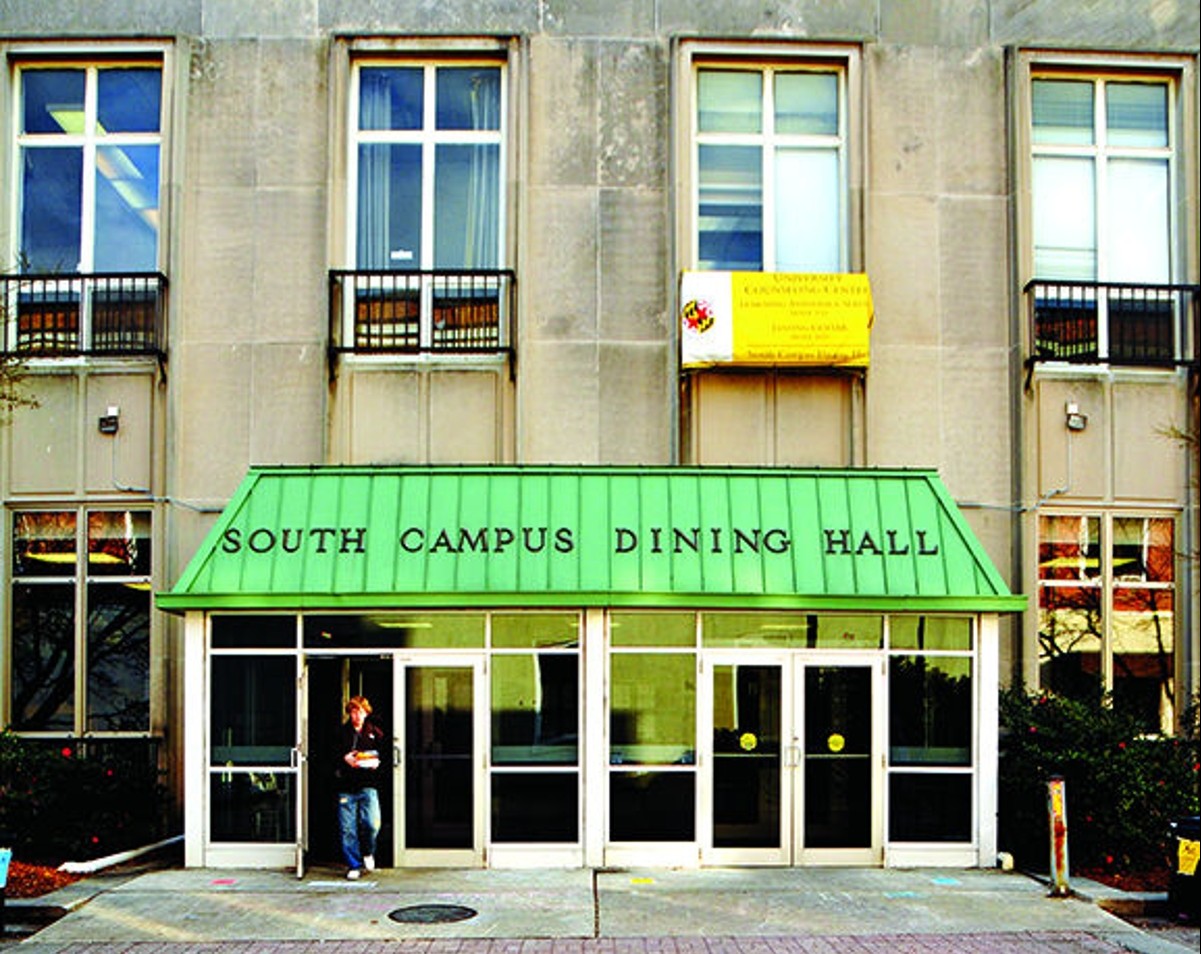On most days, University of Maryland student Stephanie George wakes up at 6 a.m. and drives 40 minutes from her home in Ellicott City to College Park, she said.
“Usually, I just eat a sandwich from the various cafes around campus,” the junior geographical information systems major said. “I eat that in the morning and then don’t eat again until I get home around 10.”
Students like George were the main cause behind a Student Government Association proposal to establish a commuter meal plan, which would address the needs of students who live far from the campus and have more difficulty getting meals than those who have shorter commutes, bill sponsor Meriam Mossad said.
[Read more: UMD students can now leave anonymous comments for Dining Services]
The SGA voted 26-0, with one abstention, Wednesday night to endorse the proposal.
The plan would include access to all dining services locations, including dining halls and campus shops, 100 times per semester and would cost less than $1,000, according to the bill.
The optional Five-Day Anytime Meal Plan, which provides unlimited access to three dining halls during the week and costs $1,899, is not suitable for commuter students because of its cost and the unlimited number of meals, according to the bill.
[Read more: An SGA committee wants to make reusable bags free at UMD convenience stores]
“Some commuters have class every day for four to five hours, and they’d need one meal each day, and some commuters … stay for nine hours, which would be ideal for two meals a day,” said Mossad, the off-campus outlying representative and a junior government and politics major. “This plan is so much more flexible [for commuters].”
Establishing a plan catered to commuters would offer a number of benefits, said bill co-sponsor Lily Kilduff.
“It would probably save on food waste, and it’ll also create healthier options for commuter students,” the transfer representative and senior sociology major said. “It would also get commuter students in the dining halls so that they can eat with their friends who live on campus.”
Many students are forced to buy food from Stamp Student Union or other fast food vendors on the campus, which can be costly, Kilduff said.
“I can’t imagine trying to figure out how I’m going to get lunch to school every day and refrigerate or buy it every single day,” she said.
George said she would eat less fast food if she were on a commuter meal plan, which she said would “really improve [her] quality of health and wellbeing.”
Dining Services favors the SGA’s proposal and would like to launch a pilot program for one semester starting in September 2018, said Dining Services spokesman Bart Hipple.
“We would monitor it very closely to see how it’s being used, how it benefits students, does it make sense in our dining halls for operations and financially,” Hipple said. “Right before classes are over next fall, we would regather and determine whether the pilot was successful, and we can continue it or not based on that.”
While Dining Services had considered a commuter meal plan in the past, nobody approached its faculty and staff about the idea before the SGA did this fall, Hipple said.
Dining Services planned to pay close attention to other services students desired after debuting the Anytime Dining plan at the start of the fall 2016 semester, Hipple said.
“We have a Five-Day Anytime Dining Plan, but for some students that are not on campus that much, but are on campus more than just a little bit, that does not meet the need,” Hipple said. “We’re looking at what would meet the need for those other students.”
Mossad will work with Dining Services in the spring to plan for possible implementation of the meal plan for the fall 2018 semester, Mossad said.



